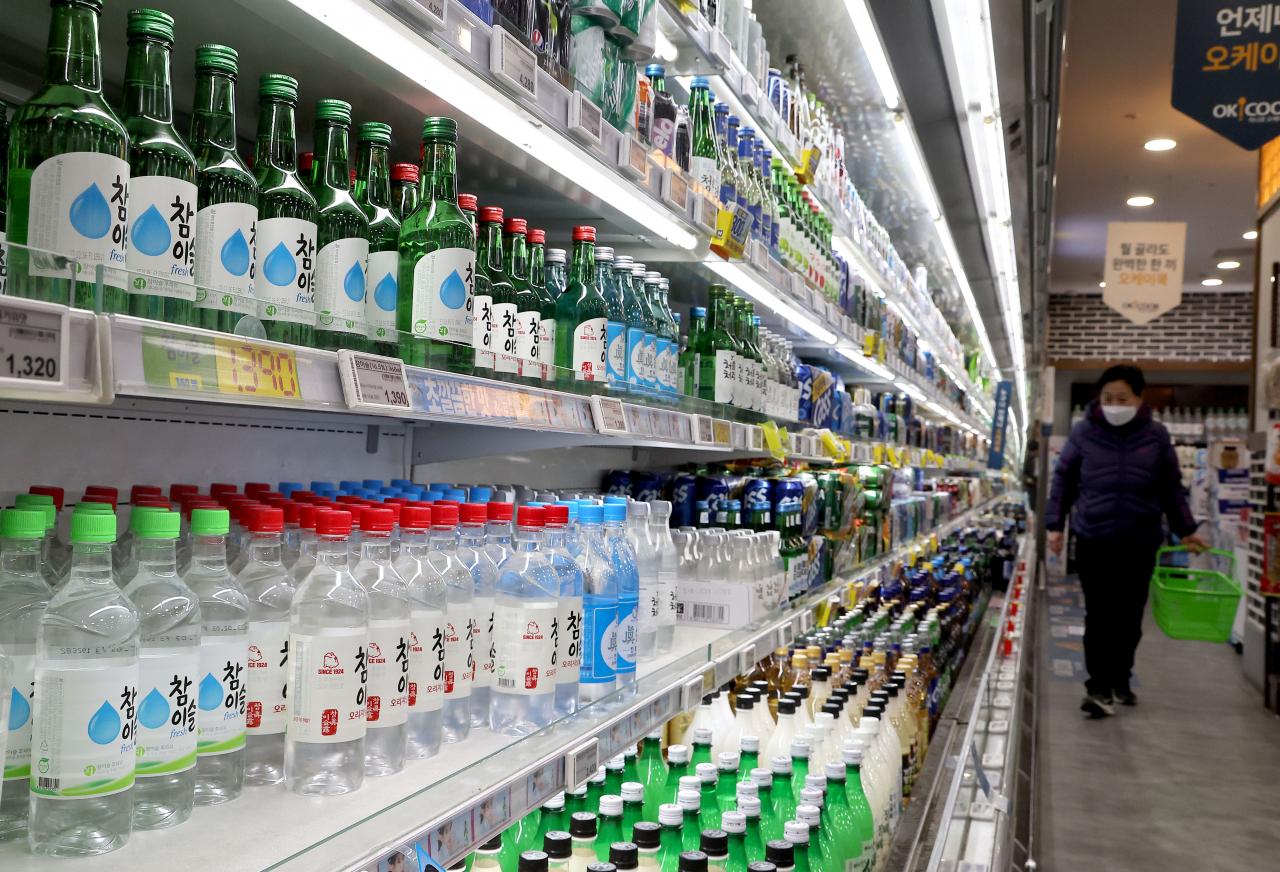 |
This photo shows soju products displayed at a supermarket in Seoul on Sunday. (Yonhap) |
The South Korean government has launched an intensive probe into liquor prices in an apparent move to tackle further price hikes for soju and beer, the two most popular alcoholic drinks in Korea, amid deepening inflation woes among consumers.
With prices of beer products expected to go up following a tax hike in April, the local liquor industry is widely expected to raise the prices of soju, too.
With concerns over the price hikes adding to the burden of consumers, the Finance Ministry is upping pressure on the whole industry as it looks into their overall business practices from production to distribution.
In a separate move, the National Tax Service reportedly held a closed-door meeting with liquor businesses to share their pricing plans and ask for support to manage liquor prices in a stable way, while the Fair Trade Commission was looking into possible antitrust issues regarding price hikes, considering the liquor industry is dominated by only a few leading players.
"I ask for the cooperation of related industries when it comes to the (price hikes) of items that people are closely associated with, such as soju," Finance Minister Choo Kyung-ho said at a parliamentary meeting on Wednesday.
“Authorities’ efforts and policies are important in stabilizing product prices, but cooperation from all areas matters, too,” he added.
The government plans to raise the liquor tax on one liter of beer by 30.5 won ($0.023) to 885.7 won in April, which exceeds last year’s increase of 20.8 won. Following the tax hike, the factory price of a 500-milliliter beer product will increase by 15.25 won.
Even though no tax hike is planned for soju yet, industry officials are concerned that the rising cost of raw materials and logistics are highly likely to lead to increased retail prices.
For instance, the price of ethanol, a key raw ingredient in soju, has been steadily rising, as a business which exclusively distributes the material raised the price by 7.8 percent last year. Bottle prices also jumped from 180 won to 220 won per bottle.
With soaring costs, businesses could raise their factory prices, which will lead to a bigger jump in the average consumer price for soju, possibly even reaching 6,000 won per bottle, which is widely regarded as a psychologically important price limit within the industry.
The upward pressure on soju prices has led to concerns for the larger public.
Soju, along with instant ramen is considered a daily necessity here, with the government closely monitoring its price changes.
Soju has long been appreciated here for its low price and accessibility. Beer is also an affordable and popular option for the public.
The average South Korean adult consumed 52.9 bottles of soju and 82.9 bottles of beer in 2022, a report released by the National Tax Service and Korea Customs Service, showed in September.
The price hike in soju and beer is expected to create a further burden on the public amid inflation woes.







